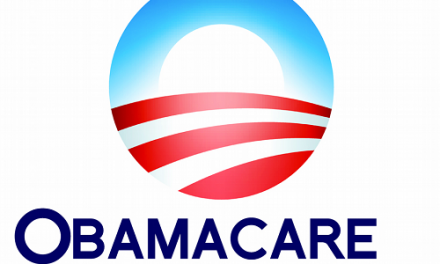The Salesman-In Chief was attempting to convince senior citizens to enroll in a Medicare D(isaster) plan.
“Take a look!” the president said, his voice rising, “[Medicare D plans are] a good deal.”
He urged people to call the 800 number or go on the internet as the medicare website is “user-friendly”. This will be of great comfort to the 76% of senior citizens who have never used the Internet.
For 34 minutes, the president was the emcee of a traveling infomercial, calling on his experts to talk about the drug program’s benefits. The participants included the head of the Medicare program, the manager of a grocery chain’s local pharmacies, and a retired couple who had signed up for the program and had little but praise for it.
continued below
Apparently, as many senior citizens have decided to NOT participate in Medicare D(isaster), it has been deemed necessary to encourage them to do so by two PR stunts, the placement of a Valentine’s Day ad in People Magazine, showing a smiling young woman being hugged by a grateful-looking elderly woman. The ad was accompanied with a card that stated that one of the ways to say “I love you” was to discuss Medicare D(isaster) coverage.
The second is the Medicare Rx Bus that has been touring the country, staffed with counselors who have been trained in assisting people select the Medicare D(isaster) insurance plan that is right for them.
Wonder if any of the counselors are from the AARP?
Also, another question worth asking is Are any of the counselors aware of the differences in the rx’s covered under Medicare B, as opposed to Medicare D(isaster)?
If the answer to that question is yes, then they should really address the difficulties that people who have had organ transplants are having. Consider the following:
Frank Cartalino, (a transplant patient)pharmacy had suddenly billed him $500 for the drugs he needs to stay alive.
Cartalino had a letter saying the [Illinois program covered his rx’s} had changed and he needed to get the medications through a Medicare drug plan. But the plan was refusing to pay the bill.
Cartalino called Medicare’s national hot line repeatedly. He called an insurance company working with the Illinois program. He called Humana Inc., his Medicare drug plan. He called drug companies, begging to get on their financial assistance programs. No one, it seemed, was able to help.
Then, Cartalino, 42, who lives on a fixed income, undergoes dialysis three times a week, and takes drugs that prevent his body from rejecting a double organ transplant, called the Chicago Tribune.
It took the Tribune a few days and repeated phone calls to determine what the problem was. Both Medicare B and Medicare D(isaster) cover rx’s–Medicare B in limited instances, specifically rx’s administered in doctor’s offices and nursing homes. (And that is a very simplified explanation.) But, if Medicare B covers an rx, Medicare D(isaster) is not allowed to, as a means of preventing double-billing. Also, some customer service representatives and pharmacies are unsure of what pays for what.
Take methitrexate, a drug that can be used to treat transplant patients as well as patients with cancer or rheumatoid arthritis. Part B will pay for the medication for transplant and cancer patients, but not for people with arthritis. That falls to Part D.
Another example: Part B will pay for albuterol, a medication taken by people with asthma, when it’s administered by nebulizer, a machine that sprays medicine into the mouth, in a person’s home. But if a senior citizen with asthma gets albuterol through a nebulizer in a nursing home, the medication is covered by Part D. And if albuterol comes in a hand-held unit, it’s also a Part D benefit.
There’s more: If a patient gets a transplant while on Medicare, like Cartalino did, Part B will pay for anti-rejection medication. But if a patient wasn’t on Medicare at the time, Part D will pay for the drugs.
In addition, the Illinois Comprehensive Health Insurance Plan (ICHIP) sent out misleading/incorrect information to Medicare recipients last year.ICHIP informed members that it would stop paying for all prescription drugs. People were encouraged to sign up with a Medicare D(isaster) plan, for rx coverage.
The ICHIP letters did not state that it would still pay for a limited set of drugs under Medicare Part B.
After receiving the letter from ICHIP, Cartalino researched Medicare D(isaster) plans and decided on a Humana plan that was supposed to pay for his rx’s (Prograf and Rapamune) that cost approximately $2,500 a month.
When refilling the anti-rejection rx’s, Humana plan wouldn’t authorize payment because the drugs were deemed a Part B, not a Part D, benefit. So, Cartalino worked the phones and discovered that no one could answer his questions. (The Tribune discovered had the same difficulties with attempting to assist Cartalino in obtaining his rx’s.)
Cartalino will get his rx’s, now that he contacted the Tribune. According to Robert Herskovitz, a Chicago Medicare official, ICHIP would cover his transplant drugs after all. That information was buried in the policy and no one knew!!!
Doubt very much that Cartalino would be interested in hearing bush’s sales pitch. So, that means, we’re back to square one! Time to go single payer!






